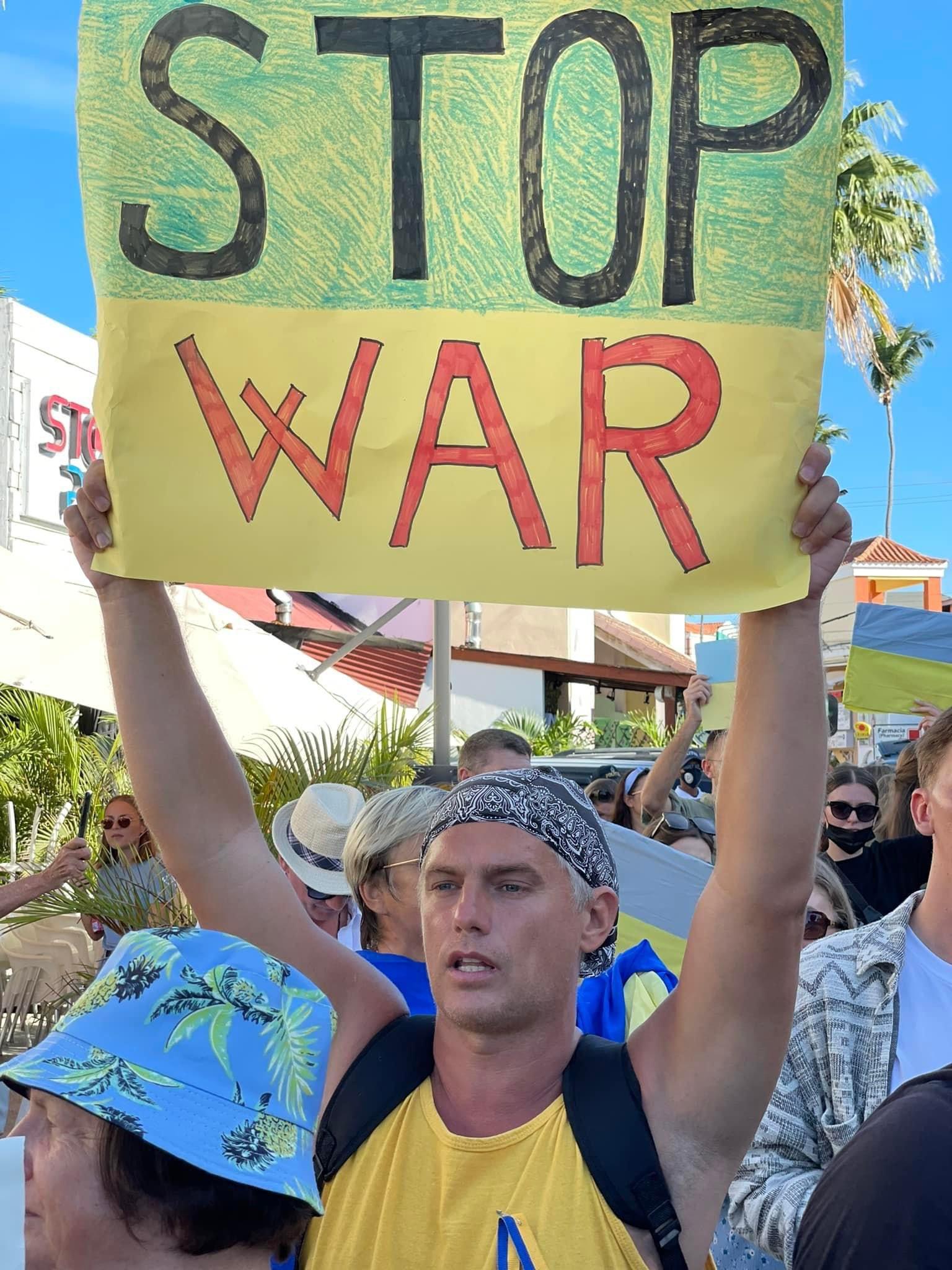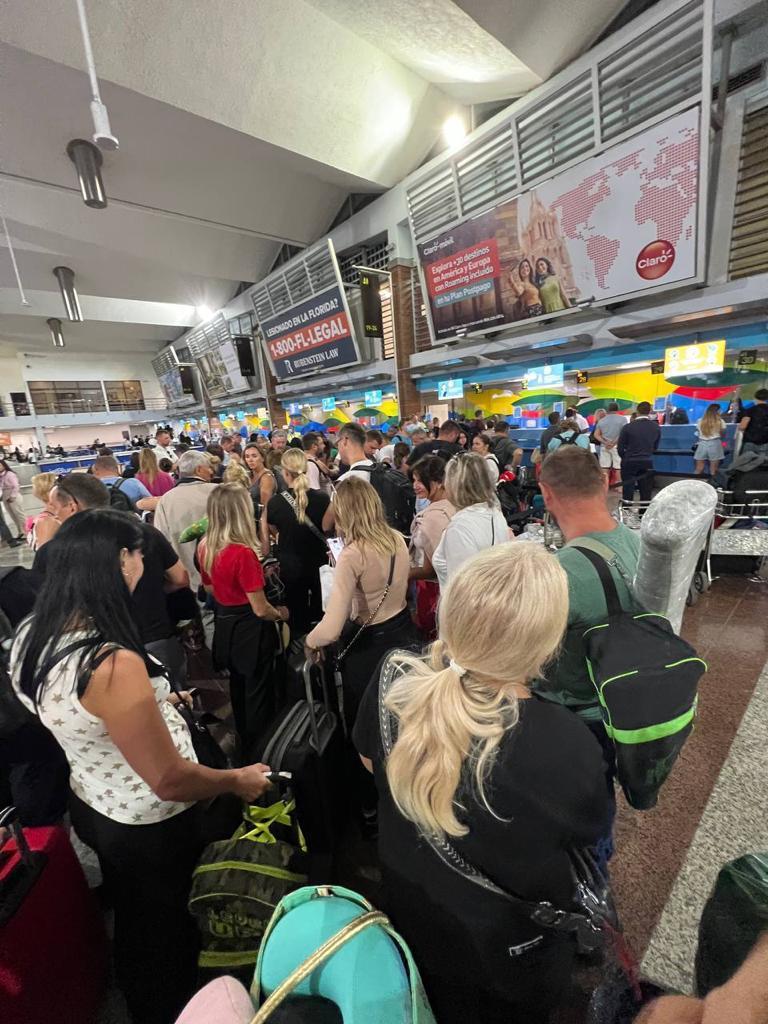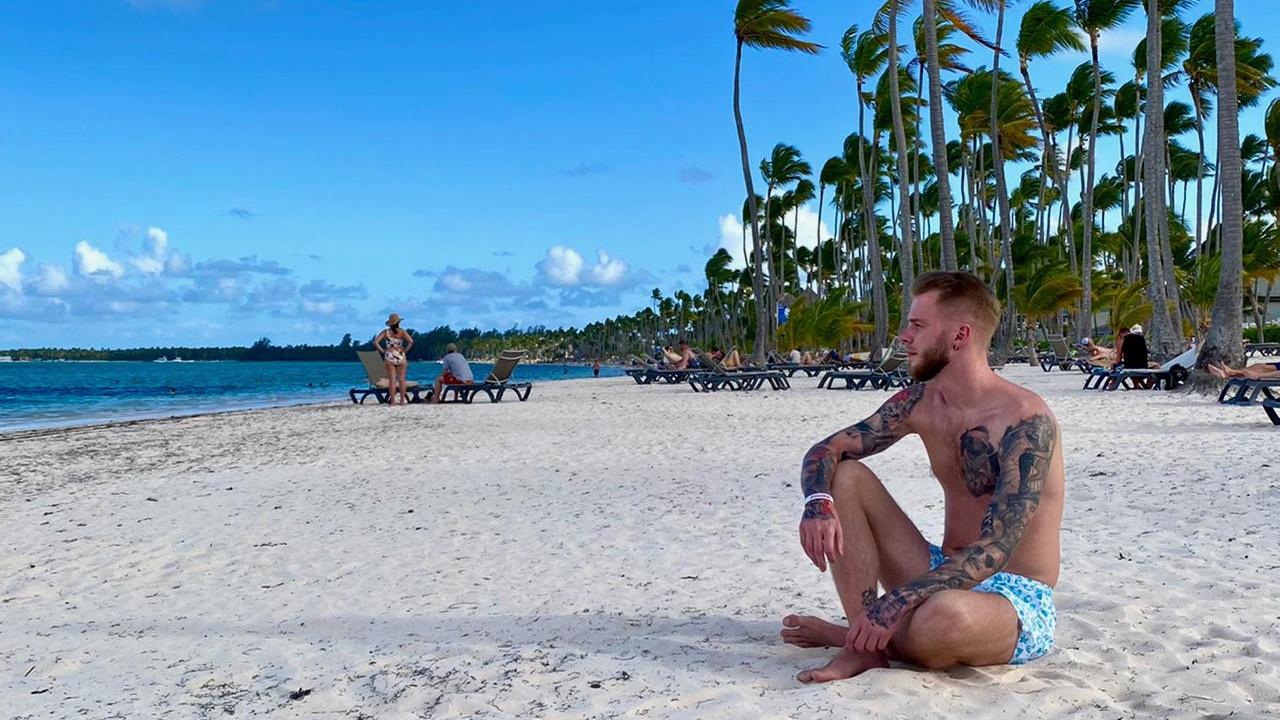Ukrainian Yuriy Shevchenko and his girlfriend left Kyiv three weeks ago for a relaxing vacation in the Caribbean peninsula of Punta Cana. But then Russia invaded Ukraine — and now, they are stuck on the island.
Yuriy Shevchenko and his girlfriend left Kyiv, Ukraine, three weeks ago for a relaxing beach vacation in the Dominican Republic.
They had planned to stay at an all-inclusive resort in the Caribbean peninsula of Punta Cana for a week, but in the middle of their vacation, the war started back home. Suddenly, their trip — and their lives — were upended.
Shevchenko and his girlfriend are part of a group of about 3,000 Ukrainians in the Dominican Republic who haven’t been able to get a flight home since Russia began its invasion in Ukraine on Feb. 24, according to the island’s Ministry of Tourism.
Related: Ukrainians fleeing war are welcomed at Romania’s southern border
For Shevchenko and his girlfriend, it’s been hard to sit idly by as their country suffers, he said. Last week, Shevchenko got the news that a close friend was killed by a Russian bomb.
“I can’t eat normally, I can’t laugh, I can’t do anything that tourists usually do. We are very worried about our families, our friends, the people we know.”
“I can’t eat normally, I can’t laugh, I can’t do anything that tourists usually do,” he said. “We are very worried about our families, our friends, the people we know.”
They’re not the only ones — thousands of tourists are going through similar situations in other popular destinations around the world as many countries suspended air traffic with Russia or banned Russian aircrafts from flying over its airspace.
Related: ‘We have compassion for them’: Romania is taking in thousands of Ukrainian refugees
The Dominican government announced a series of measures that guarantee lodging, food and local transportation to Ukrainians stranded on the island.
The Ministry of Tourism designated a beach resort in the nearby area of Puerto Plata to host stranded tourists for two weeks, with all meals included.
Shevchenko and his girlfriend are now staying at a small, private hotel owned by a Dominican resident who is not charging them any money. He said he was grateful for the hospitality of the locals on the island.
“There are a lot of pretty, kind and nice people here,” he said. “I didn’t expect to meet [locals] at all. They helped us.”
Still, many Ukrainians on the Caribbean island are eager to get back home.
“I hear from men and women that they can’t wait to get back so they can join the struggle,” said Kateryna De Los Santos, a Ukrainian immigrant who lives on the island and is helping with humanitarian assistance for tourists in the Dominican Republic.
Related: The Ukrainian city of Lviv is a sanctuary. But a humanitarian crisis is deepening.
De Los Santos has organized volunteers and set up a social media group for coordinating assistance for the stranded Ukrainian tourists. More than a thousand members have joined the group.
“The response has been amazingly warm. I get calls from people who offer to drive people for free, cook meals, or host in their houses.”
“The response has been amazingly warm,” she said. “I get calls from people who offer to drive people for free, cook meals, or host in their houses.”
She also put together a fundraising campaign to help stranded tourists get back home.
Last week, De Los Santos helped organize an anti-war protest in Punta Cana that attracted hundreds of locals and tourists from diverse nationalities, including people from Russia vacationing in the Dominican Republic.

About 530 Ukrainians have taken two humanitarian flights from Punta Cana to Amsterdam and Warsaw since the war started, according to local reports. But it is unclear how many of these flights will be arriving in the next few days.
Flights from Punta Cana back to Europe are not easy to find, and they are expensive, De Los Santos said.
“The main issue is the money because when there is a war going on, you don’t know how long you will have to stretch whatever savings you have,” she said.
Related: A race against time to preserve Lviv’s cultural treasures
Tourism officials said that more than 14,000 Russian tourists are also stuck in the Dominican Republic. But Russian travelers are in a less stressful situation, according to Pepe Villalba, who is fluent in Russian and works as a local tourist guide in Punta Cana.
He said that many flights to Moscow were canceled or delayed, but Russians have been able to find daily flights back home.
On the day the war started, Villalba said, he had planned to bring Russian and Ukrainian tourists on a boat excursion to the neighboring island of Saona.
“All the Ukrainians canceled their reservations,” he said. “But the Russians all made the trip.”
However, Villalba noticed that none of them mentioned the war.
Sanctions against Russian banks are not yet active, but some Russians abroad have reported on social media that they are unable to get cash out of ATMs.
Also, many of those affected are not getting help from travel insurance companies because they don’t offer coverage in the event of war.
Tourists from Ukraine and Russia are stranded in other countries.
In Egypt, about 20,000 visitors from Ukraine are stuck at resorts on the Red Sea, according to data from the Ukrainian Embassy in Cairo. The Ministry of Tourism offered them the option to be transferred to three-star hotels paid for by the government. However, it is unclear how long this offer will last.
In Cuba, an airport official in Varadero told reporters that nearly 2,000 Russian tourists have taken chartered flights to Moscow.
And on the archipelago of Zanzibar, just off the coast of mainland Tanzania, hundreds of Ukrainians are currently stuck without a way out. The authorities have announced that they will offer accommodation and other assistance.
Ukrainian and Russian tourists are also trapped in North America, Europe and other parts of the Caribbean and elsewhere.

As for Shevchenko and his girlfriend, it’s unclear how long they will be in the Dominican Republic — and they are making do — but they said that they’re upset about what’s happening in Ukraine.
“We are angry. We feel this situation is unfair because our lives were good. We got some plans and at this time, everything was broken because some guy decided that he could play God,” he said. “All this fighting makes us crazy because we see that children die. [Russia] bombed, killed [and targeted] kindergartens, schools, hospitals.”
When he gets back home, Shevchenko said, he wants to enlist as a volunteer in the military. And his girlfriend, he added, hopes to be reunited with her family in the Kyiv region.
